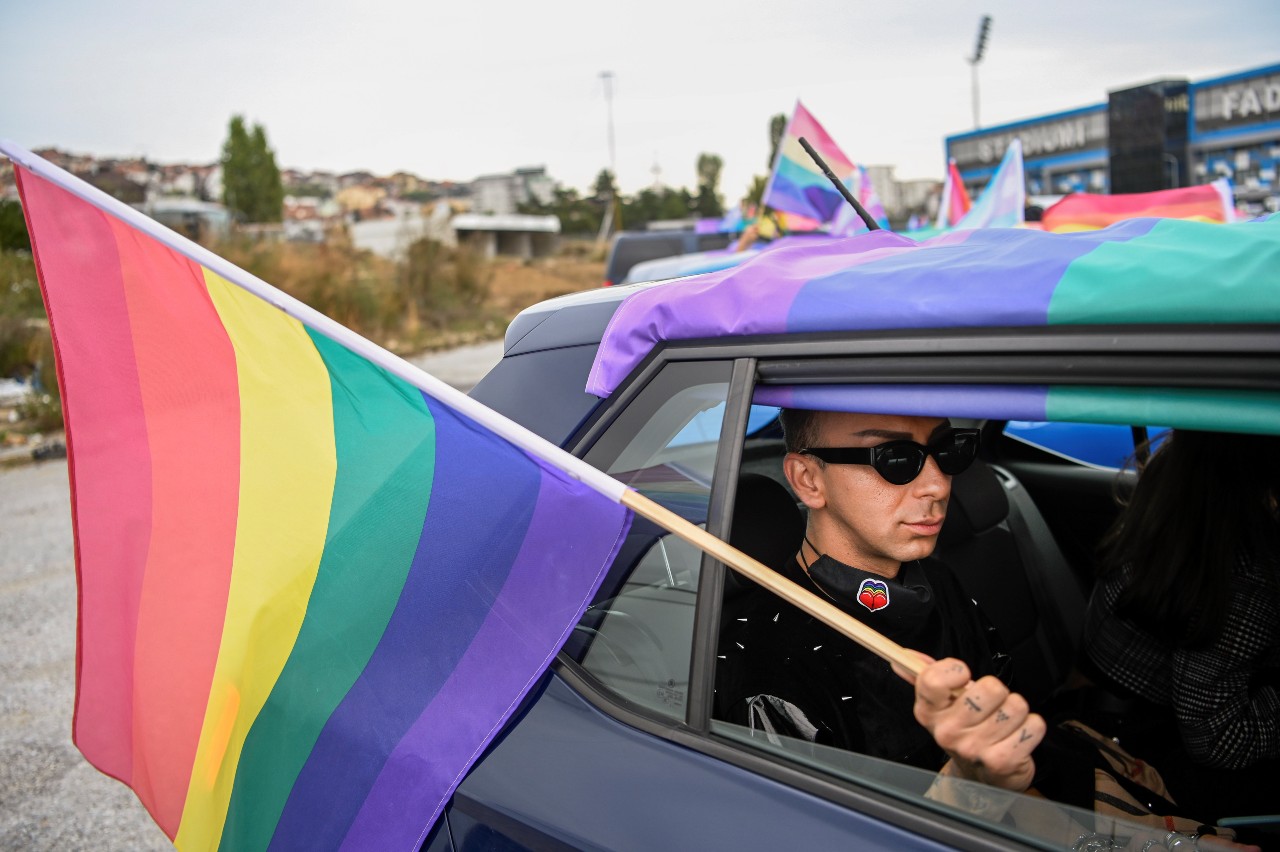A Turkish imam’s homophobic comments led to an investigation in Belgium, which brought into the spotlight Islam’s views on LGBT. Theologian Ahmet Kurucan says Islamic sources should not be used to demonize LGBT individuals.
While the subject remains a taboo in many Muslim-majority countries, theologians maintain that Islam views homosexuality as a reality and that it prioritizes human dignity and diversity above all, leaving it to lawmakers of every era to decide how to handle the subject.
Imam characterizes homosexuality as a ‘disease’
Belgium has decided to expel the Turkish imam of the Groen Moskee (Green Mosque) in the town of Houthalen-Helchteren by not extending his residence permit. The mosque is operated by Turkey’s Directorate of Religious Affairs (Diyanet), and the imam’s salary is paid by the Turkish government. The Belgian media, without disclosing the imam’s name, reported his social media posts in which he described homosexuality as a “disease” causing decay in society. “Homosexuality is a virus of capitalism and democracy,” he said.
The imam, who has been living in Belgium for the past three years, referred to an anti-LGBT sermon given in May 2020 by Diyanet President Ali Erbaş. In the sermon the top Turkish religious official had said that homosexuals were “cursed” and that they were “spreading disease among the public.”
The use of Islamic references in anti-LGBT statements is frequent. However, some theologians say anti-LGBT views do not emanate from Islam.
LGBT in Islam
Islam’s views on homosexuality is a topic of particular interest for Muslims living in Western countries. Kurucan, a US-based Islamic scholar, is one of the experts who frequently receives questions about the subject, which he finds difficult to talk about.
Kurucan says LGBT individuals have existed since the dawn of humanity and that it has only become an issue in the last century because they started to demand visibility and acknowledgment of their sexual identity. He says some verses of the Quran deal with LGBT people, which, according to him, proves that Islam views homosexuality as a reality of the time and the society where the Quran was revealed.
Kurucan says the Quran does not put forward a concrete precept on homosexuality and that it leaves the question to lawmakers. “Besides, even if the Quran or the sunnah (the traditions and practices of the Prophet Muhammad) does prescribe punishment for certain acts, it was made against the backdrop of the sociocultural circumstances of the time.”
Contrary to Erbaş’s remarks about homosexuals being “cursed,” Kurucan says Muslims should conduct their social and human affairs with LGBT individuals the same as with everyone else. According to Kurucan, Muslims should strictly avoid demonizing LGBT people by using terms such as “disease” and “infernal.”
In a YouTube video with a considerable number of views, Kurucan says some Muslims may feel like they want to distance themselves from LGBT individuals, but they have to respect their sexual orientation. Kurucan says LGBT people can want to be visible with their sexual identity, just like heterosexuals do.
‘The Prophet condemned nobody’
South African theologian Scott Siraj al-Haqq Kugle is the author of the most comprehensive work on the subject of LGBT in Islam. In his book, titled “Homosexuality in Islam: Critical Reflection on Gay, Lesbian, and Transgender Muslims,” Kugle points out that no LGBT individual was condemned by the Prophet Muhammad.
Kugle’s book notably makes a detailed distinction between Quranic verses and the Prophet Muhammad’s practices and the traditions of Muslim societies. Kugle insists that Islam places emphasis on human dignity and welcomes sexual identity as an inseparable component of human nature.
Controversy in Europe triggered by the Turkish Diyanet
What reignited the debate among Muslims of Turkish origin living in Europe was Erbaş’s homophobic sermon and a Twitter hashtag movement that followed it.
In support of Erbaş’s remarks, some Turkish Twitter users launched the tag #YallahHollandaya (Off you go to the Netherlands), meaning homosexuals in Turkey should leave the country and move to the Netherlands where gay marriage is permitted. The hashtag drew the reaction of Marjanne de Kwaastneit, the Dutch ambassador in Ankara.
In a tweet the Dutch diplomat said, “The Netherlands stands for everyone’s right to be themselves everywhere in the world, regardless of gender or sexual orientation.”
Mosque facing closure
After the imam’s anti-LGBT comments, the Groen Moskee is faced with a potential revocation of its official recognition as a house of worship, which implies that it could be shut down. Bart Somers, the vice minister-president of the regional Flemish Ministry for Living Together and Domestic Administration, has launched a procedure to that end. The mosque’s administration has declared that they will defend their legal rights.
Sammy Mahdi, federal state secretary for asylum and migration, announced that he has decided not to renew the imam’s residence permit.
“Whoever comes to sow hatred in our society has no place here,” Mahdi said.



